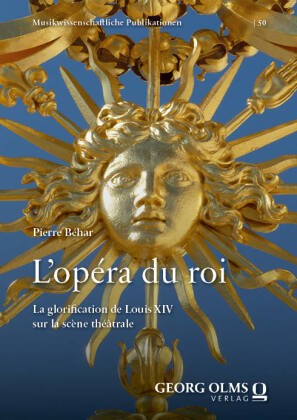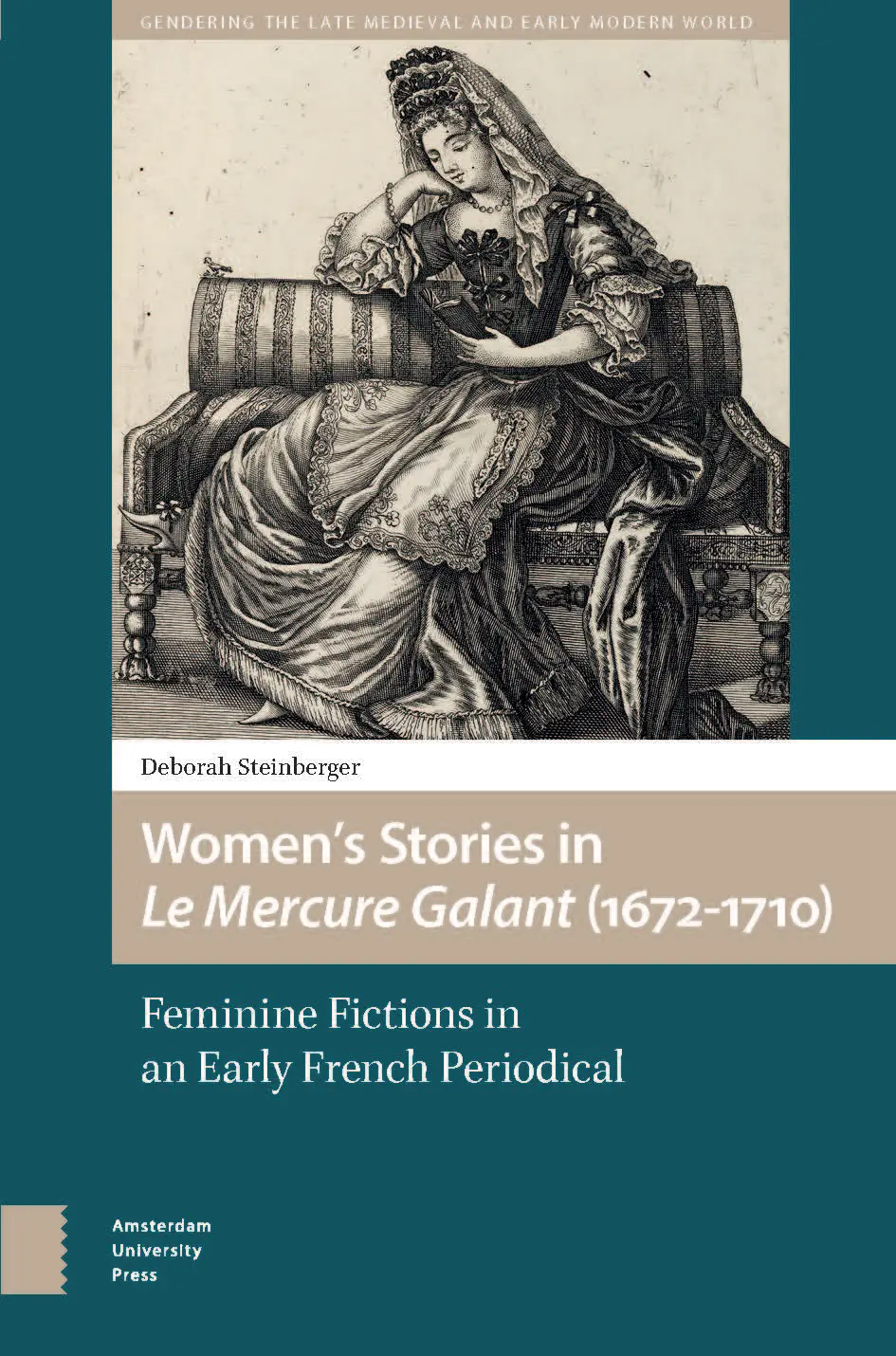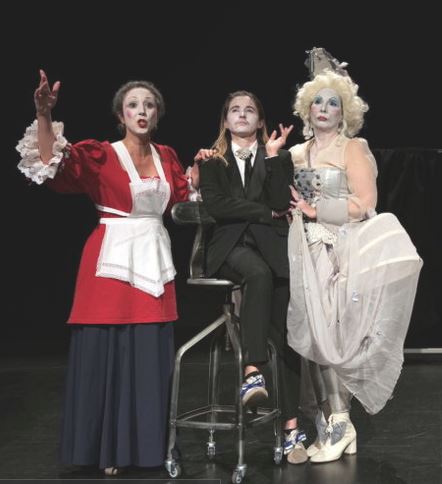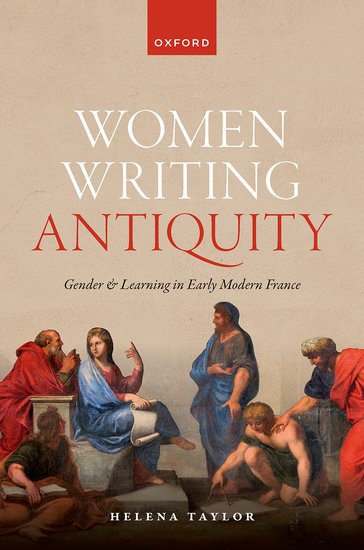Sessions d’études numériques
La spiritualité de l’Âge Classique au miroir du XIXe siècle
Le Collectif d’Anthropologie et d’Histoire du Spirituel et des Affects, le CASHA (www.cashanet.org), sollicite des contributions pour ses prochaines sessions d’étude en ligne, qui feront office d’ateliers préparatoires en vue du colloque « La spiritualité de l’Âge Classique au miroir du XIXe siècle »initialement prévu à Chicago en octobre 2020 et reporté à l’automne 2021 en raison de la crise sanitaire. Invitant les participant·e·s à réfléchir aux problématiques décrites ci-dessous, ces sessions se déclineront en trois volets suivis, dont le détail est mentionné plus bas.
Ce format d’étude expérimental voudrait, par rapport au colloque « traditionnel », étendre les échanges scientifiques à tout le processus de recherche (choix du corpus, définition d’une problématique, etc.) impliqué dans la production d’une communication. Anticipant le colloque en présentiel qui se tiendra à Chicago (automne 2021), ces ateliers préparatoires visent en outre à renforcer l’interaction entre chercheur·e·s intéressé·e·s aux enjeux historiques, anthropologiques ou littéraires de l’iconographie ou des textes religieux à l’âge classique. Il serait préférable que les personnes intéressées s’inscrivent aux trois sessions de travail, de façon à assurer la cohérence entre les ateliers. La participation au colloque 2021 n’est pas requise mais souhaitable, dans la mesure où les groupes des ateliers en ligne formeront des panels lors de ce colloque. À cette occasion, les communications pourront être données par visioconférence, si nécessaire.
La date de notre évènement en présentiel en 2021 n’est pas encore déterminée. Elle sera choisie en fonction des nouvelles dates du colloque de la Société d’études pluridisciplinaires du dix-septième siècle français (SE17), afin que le colloque du CAHSA se tienne le jour précédent ou suivant le colloque de la SE17.
I. Perspectives de recherche
Ces sessions d’études en ligne exploreront les métamorphoses ou la continuité au XIXe siècle de la spiritualité des XVIIe et XVIIIe siècles dans la France et ses colonies. Les intervenant·e·s seront notamment invité·e·s à questionner les transformations des pratiques religieuses héritées des siècles anciens, à travers la réédition de textes spirituels ou l’évolution architecturale et matérielle des lieux et objets de culte. Ils pourront s’intéresser notamment à l’influence du contexte historique (du Concordat à l’après 1870) sur la réactualisation et/ou la récupération idéologique des textes et des pratiques religieuses, dans une perspective qui englobe aussi bien l’histoire de l’Église que l’histoire du livre ou l’histoire des idées. Une attention particulière pourra être accordée aux écrivains qui ont fait de la spiritualité classique une pierre de touche de leurs œuvres (Chateaubriand, Lamartine, Constant, etc.) et aux sensibilités individuelles ou collectives exprimées vis-à-vis de l’héritage religieux (qu’il s’agisse d’admiration ou de rejet). Les contributions pourront en outre évaluer, entre auteurs et publics, l’influence de l’horizon d’attente (convictions, croyances et sensibilités des fidèles ; sociologie du lectorat ; goûts et affects) sur la production ou la reproduction de textes et objets à connotation spirituelle.
Les problématiques à explorer incluent, de manière non limitative :
L’histoire du livre, notamment les rééditions du Grand Siècle, les éditions, leur lectorat, le choix des textes, et leur possible remaniement, ou censure. Ceci tant pour la période du Concordat et de la Restauration que de l’après 1870.
L’histoire et l’évolution de la doctrine, de la théologie, et de la liturgie, incluant les problèmes liés à l’adaptation langagière, dogmatique ou scénique des textes et des pratiques d’un siècle à l’autre.
La littérature pieuse des XVIIe et XVIIIe siècles republiée et/ou réadaptée au XIXe siècle en fonction de nouvelles exigences, que celles-ci viennent des éditeurs ou des publics.
Les problèmes de censure liés à des spiritualités perçues comme dissidentes ou jugées proches de courants estimés dangereux ou hérétiques, tels que le quiétisme, le théisme, et l’efflorescence de nouvelles religiosités politiques avec le Romantisme.
Les raisons politiques, idéologiques, ou encore historiques de la réadaptation des textes et des pratiques de l’Âge Classique au XIXe siècle. On pourrait s’intéresser, dans cette perspective, à l’endiguement antirévolutionnaire, à l’expansion coloniale ou à la critique marxiste de la religion-opium.
Les objectifs et les projets missionnaires du XIXe siècle, qui s’appuient sur des modèles des siècles précédents.
Les cas de béatification et de canonisation au XIXe siècle des figures des XVIIe ou XVIIIe siècles et les raisons de leurs succès ou de leurs échecs.
La réimagination, recréation ou restauration au XIXe siècle de l’iconographie ou de l’architecture religieuse des XVIIe et XVIIIe siècles.
II. Déroulement des sessions de travail :
Premier volet (octobre 2020). Après une présentation générale des objectifs de recherche et du déroulement des ateliers, cette session de travail proposera aux participant·e·s de présenter (en français ou en anglais) un corpus en lien avec la problématique du colloque. Les participant·e·s seront répartis en petits groupes, en fonction du type ou des enjeux de leur corpus. Les présentations seront suivies d’une synthèse, qui tentera de saisir les réminiscences et la vitalité de la spiritualité classique au XIXe siècle, qu’elles attestent de continuités, de métamorphoses ou de ruptures.
Deuxième volet (mars 2021) Cette deuxième session invitera les participant·e·s (répartis dans les mêmes groupes) à présenter une problématique définie en lien avec leur corpus et soumise (3-5 pages) aux autres membres du groupe une semaine avant la session de travail. Les échanges de cette séance doivent permettre à chaque participant·e d’approfondir, de compléter ou de réorienter leur problématique en fonction des commentaires et/ou des pistes bibliographiques suggérées par les collègues.
Troisième volet (mai 2021) Sur la base des échanges des deux premières sessions, les participant·e·s identifieront les points de contact entre leurs problématiques respectives et dégageront les enjeux communs de leurs corpus. Les résultats de ces échanges serviront à la définition d’un cadre théorique ou épistémologique qui sera présenté lors du colloque en présentiel, par exemple en tête des panels, de manière à situer les communications individuelles et à préciser leurs enjeux.
III. Format des sessions :
Chaque atelier numérique durera environ 2h et se déroulera comme suit :
30 min. : Accueil des participant·e·s et présentation de la session
60 min. : Travail en petits groupes (4-5 pers.), en utilisant la fonction "Zoom Breakout Rooms"
30 min. : Mise en commun, avec tou·te·s les participant·e·s
IV. S’inscrire :
Nous invitons les collègues intéressés à nous adresser des propositions, en français ou en anglais. Toute personne désireuse de participer à ces sessions d’études en ligne peut se manifester auprès de joy.palacios@ucalgary.ca et de groupecahsa@gmail.com, en présentant un bref descriptif (max. 1 page A4) du corpus et de la problématique qu’elle voudrait présenter lors de ces ateliers. Les propositions devront être envoyées par courriel avant le 15 août 2020.
Les participant·e·s devront devenir membres du CAHSA avant la première session de travail. L’adhésion se fait à www.cahsanet.org ($15 CAD/an, payable par PayPal).
Comité organisateur :
Joy Palacios, Université de Calgary
Arnaud Wydler, Université de Fribourg
Richard Reinhardt, Université de Michigan
Marc Court, chercheur indépendant
Marion Robinaud, LabEx HASTEC (EPHE/PSL/EHESS/CNRS/Césor)
Comité scientifique :
Anne Régent-Susini, Université Sorbonne Nouvelle, Paris 3
Emmanuelle Friant, Université de Montréal
Corinne Bayerl, Université d’Oregon
*** *** *** *** *** *** *** *** ***
Online Workshop Series
Spirituality of the French Classical Period through the Prism of the 19th Century
The Collectif d’Anthropologie et d’Histoire du Spirituel et des Affects, or CAHSA (www.cahsanet.org), invites proposals for its upcoming series of online workshops, which will serve as seminars building toward its conference on the theme “Spirituality of the French Classical Period through the Prism of the 19th Century” in Chicago in fall 2021. These workshops, described in more detail below, will enable participants to develop their work through a three-stage process of dialogue and exchange.
In relation to the “traditional” conference planned for fall 2021, this experimental format aims to support the entire research process that the writing of a conference paper implies, from the choice of a corpus of texts to the articulation of a central problem or question. Each workshop will likewise foster scholarly inquiry and discussion among researchers interested in the historical, anthropological, and literary stakes of the religious texts and iconography of the French classical period. Our hope is that participants will be able to contribute to all three workshops so as to generate a coherent conversation that builds from session to session. Participation in the 2021 conference is not required, although desirable, as our vision is that the small groups that will work together over the course of the three workshops might develop into panels at the conference. Although we are planning for an in-person conference in 2021, it will be possible to give papers using a platform such as Zoom, if necessary.
The date of the 2021 conference is yet to be determined but will be chosen according to the new dates for the Society for Interdisciplinary French Seventeenth-Century Studies (SE17), so that CAHSA’s conference will take place either the day before or after SE17.
I. Conference Theme
Our online workshop series and the conference toward which they build will explore the way writers, thinkers, artists, and religious practitioners of the 19th century adopted, preserved, or transformed the spirituality of 17th and 18th century France and its colonies. We invite participants to interrogate transformations and continuities in the religious practices inherited by the 19th century from the early modern period as evidenced in the reedition of spiritual texts or the architectural and material evolution of religious spaces and devotional objects. Inquiries may also consider the historical context (from the Concordat to the period after 1870) and its influence on the re-actualization and/or ideological recuperation of religious texts and practices, taking into account histories of the Church, the book, and of ideas. Writers who made the spirituality of the French classical age a touchstone for their work merit special attention (Chateaubriand, Lamartine, Constant, etc.), as does the way these works leverage the religious heritage of the early modern period (whether in a mode of admiration or rejection) to express individual or collective sensibilities. Papers may likewise evaluate the relationship between authors and publics, examining the way factors such as religious beliefs and doctrines, the demographics of different readerships, or taste and affect influenced the production and reproduction in the 19th century of spiritually inflected texts and objects from the 17th and 18th centuries.
Suggested areas of focus include but are not limited to:
The history of the book, especially that which is reedited from the Grand Siècle, the various editions, their readers, the choice of texts, and their possible modification or censorship, both for the period of the Concordat and the Restoration as well as for after 1870.
The history and evolution of the doctrine, theology, and liturgy of the French classical period in the 19th century, including questions related to the adaptation of language, dogma, and modes of theatrical or visual representation from one century to another.
The devotional literature of the 17th and 18th centuries republished or readapted in the 19th century according to new expectations, whether these derive from editors or their publics.
The question of censorship in relation to spiritualities perceived as dissident or judged too close to religious movements deemed dangerous or heretical, such as quietism, theism, and the development of new political religiosities with Romanticism.
Political, ideological, and historical reasons for the re-adaptation of texts and practices from the French classical period in the 19th century, such as the containment of anti-revolutionary sentiment, the dynamics of colonial expansion, or a Marxist critique of religion as the opium for the people.
The ways in which missionary goals and projects of the 19th century built on models established during the early modern period.
The cases of 19th-century beatification or canonization of figures from the 17th and 18th centuries, as well as the reasons for their success or failure.
The 19th-century reimagination, recreation, or restoration of the religious iconography or architecture of the 17th and 18th centuries.
II. Program for Each Workshop Session
Workshop 1 (October 2020) – After a general introduction of the goals and format of the workshops, during this first session participants will present (in English or French) the corpus of documents they plan to study in relation to the conference’s theme. Participants will be organized into small groups according to the type of corpus with which they plan to work so as to foster discussion about the specific questions and problems raised by different types of primary materials. At the end of the session, the larger group will reconvene to share key findings from the small group discussions with the goal of arriving at a tentative overview of the traces and vitality of early modern spirituality in the 19th century, whether these traces suggest continuities, transformations or ruptures.
Workshop 2 (March 2021) – In the second session, participants will be asked to define a central question or thesis in relation to their chosen corpus. They will articulate this question or thesis in a short draft (3-5 pages), which they will pre-circulate to their small group one week before the session. The goal of the session will be to discuss the drafts, in the same small groups from the first workshop, so as to help each participant develop their main ideas based on feedback and bibliographic suggestions from colleagues.
Workshop 3 (May 2021) – Based on the exchanges of the first two workshops, the goal of our third session will be to encourage participants, working again in their small groups, to identify points of contact between their central questions and theses and to think comparatively about the themes and stakes common to their corpora. These discussions will serve to generate guiding theoretical or epistemological frameworks, which can then be shared by each small group at the conference in 2021, for example as an introduction to a panel, so as to situate the panel’s individual papers and illuminate the nature of their contributions to a larger area of inquiry.
III. Format of the Workshops
Each online workshop will last approximately two hours and will follow more or less the following schedule:
30 minutes – Welcome, introduction, and presentation of the session’s goals
60 minutes – Work in small groups (4-5 people) using the Zoom Breakout Rooms function
30 minutes – Synthesis and sharing with all the participants together
IV. How to Enroll
We invite proposals in English or French. The proposal should take the form of a brief description (maximum 1 page, A4) of your corpus and the central questions or problems you plan to explore. Proposals should be sent by 15 August 2020 to:
joy.palacios@ucalgary.ca and groupecahsa@gmail.com.
Workshop participants will be asked to become members of CAHSA in advance of the first working session. Membership costs $15 CAD/year, payable using PayPal via our website: www.cahsanet.org.
Organizing Committee:
Joy Palacios, University of Calgary
Arnaud Wydler, University of Fribourg
Richard Reinhardt, University of Michigan
Marc Court, independent scholar
Marion Robinaud, LabEx HASTEC (EPHE/PSL/EHESS/CNRS/Césor)
Scientific Committee:
Anne Régent-Susini, Université Sorbonne Nouvelle, Paris 3
Emmanuelle Friant, Université de Montréal
Corinne Bayerl, University of Oregon




 Pierre Béhar, L’Opéra du roi. La glorification de louis xiv sur la scène théâtrale, Hildesheim, Olms, 824 pages.
Pierre Béhar, L’Opéra du roi. La glorification de louis xiv sur la scène théâtrale, Hildesheim, Olms, 824 pages. Deborah Steinberger, Women’s Stories in Le Mercure Galant (1672-1710) . Feminine Fictions in an Early French Periodical, Amsterdam, AUP, 2024.
Deborah Steinberger, Women’s Stories in Le Mercure Galant (1672-1710) . Feminine Fictions in an Early French Periodical, Amsterdam, AUP, 2024. Aurore Évain, « Jouer La Folle Enchère de Madame Ulrich », entretien réalisé par Caroline Mogenet, thaêtre [
Aurore Évain, « Jouer La Folle Enchère de Madame Ulrich », entretien réalisé par Caroline Mogenet, thaêtre [ Helena Taylor, Women Writing Antiquity: Gender and Learning in Early Modern France (OUP: 2024)
Helena Taylor, Women Writing Antiquity: Gender and Learning in Early Modern France (OUP: 2024)